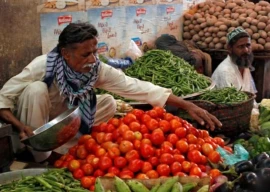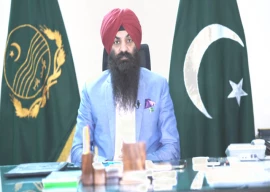
How many Pakistanis genuinely care about the Right to Information Act? Will the government facilitate the implementation of the Act? Will the youth want to know about this Act? Why is there a need to withhold certain information from the citizens?
These are some of the questions that were raised during a brainstorming session held at the Beaconhouse National University’s Tarogil campus where as many as 20 bloggers and social media activists formulated communication strategies to help the government generate greater awareness about the Punjab Transparency and Right to Information Act 2013.
The project led by the Centre for Art and Design Education and Research at the BNU School of Visual Arts and Design has been funded by the World Bank. It will involve 20 partner educational institutions, 10 from Lahore and five from Faisalabad and Multan. The participants hailed from Lahore, Faisalabad, Gujrat, Sialkot, Islamabad and Multan.
Student Affairs and External Relations Director Zaeem Yaqoob told the participants during his presentation that the aim of the project was to facilitate the government by offering recommendations to ensure the Act’s ‘flawless implementation’. He said that citizens have been empowered through the Act, but the activity would help generate ideas for educating people about their right to information. “It is our responsibility to take the process forward and help people understand the Act and how it can be used”, he said.Saad Saleem Malik, who is part of the project’s social media team, spoke about the most effective social media practices for disseminating information to the general public. Malik delved into details about how social media could be used for mobilising people, citizen policing and building connections.
Pizza slices and fizzy drinks in hand, social media activists started off with an hour-long ice breaking session. Hammad Anwar, a blogger and communications director of Rabtt, a social enterprise focusing on public schools, said social media was most popular amongst the youth, who were the majority of Pakistan’s population. He said there was a need to focus on these to ensure greater awareness regarding the right to information law. “For better or for worse, social media is the place to get a sense of general perception”, Anwar said.
“Legislation is a step in the right direction for social media”, said Rab Nawaz, the editor of a youth magazine called Laaltain. He said such activities help create awareness regarding a larger debate on democracy and accountability.
Salman Fayyaz, a communications professional, said the exercise would be useful for mass dissemination of information on the Act.
Aarish Sardar, an assistant professor at the Visual Communication Design and School of Visual Art and Design at BNU and jury member for the strategies competition, said they were looking for innovative design as well as creative strategies.
Winning strategies will be presented before government representatives. The project’s activities include think tank dialogues in and youth mobilisation activities.
Published in The Express Tribune, May 7th, 2014.
1732521023-0/biden-(1)1732521023-0-405x300.webp)
1732520496-0/BeFunky-collage-(86)1732520496-0-165x106.webp)
1732519472-0/lamar-(3)1732519472-0-165x106.webp)
1732519298-0/BeFunky-collage-(85)1732519298-0-165x106.webp)













COMMENTS
Comments are moderated and generally will be posted if they are on-topic and not abusive.
For more information, please see our Comments FAQ